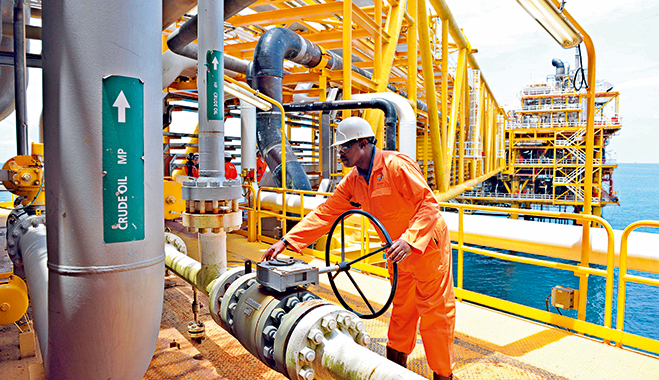Nigeria is poised for new investments and growth in its oil and gas sectors following new energy regulations and oil and gas licensing rounds, according to the Africa Energy Chamber
The Nigerian government has established a new legal framework that includes tax incentives and VAT exemptions on compressed natural gas (CNG), liquefied petroleum gas (LPG), diesel, and tax credits to encourage offshore investments. This program aims to unlock immediate funding and establish a solid foundation for gas projects by 2029, targeting deepwater developments and less exploited onshore sites. The positive impact of these measures on Nigeria’s economy is expected to reassure policymakers and boost their confidence in the country’s future.
Between 2013 and 2023, international oil companies redirected a substantial US$82 billion in investments from Nigeria to other jurisdictions. However, with the implementation of the new reform, Nigeria is poised to recapture a significant portion of this capital flow, estimated at a staggering US$90 billion, for upcoming offshore projects.
Government Policies
New measures now include tax reliefs for new gas projects in shallow waters and on land to start production before 2029. According to industry stakeholders, improved coordination between the government and investors has enhanced the perception of Nigeria’s regulatory environment.
Nigeria also seeks to diversify its energy revenue sources to reduce its dependence on crude oil. By increasing gas production, the country aims to secure its internal energy supplies and strengthen its position in the global market. This strategy aligns with modernization efforts undertaken by other major African energy giants, seeking to compensate for losses caused by the global energy transition and fluctuations in commodity prices. The potential for growth in Nigeria’s energy sector is a source of excitement and hope for industry stakeholders.
The Nigerian market is witnessing a resurgence of interest from international oil companies, who are anticipating a more favorable investment environment. At the recent SAIPEC meeting in Lagos, Nigeria, representatives from Shell Corporation voiced their confidence in the country’s new oil and gas outlook. The improved coordination between the government and investors has fostered greater transparency and reduced regulatory uncertainties, further attracting these key players.
Economic and Geopolitical Stakes
The oil and gas sector accounts for 92 per cent of Nigeria’s exports and about 5.5 per cent of its GDP. Diversifying energy revenues is essential for the country’s economic stability. Moreover, increasing gas production is crucial to meeting the growing domestic demand and positioning Nigeria as a key player in the international natural gas market.
Regional geopolitical dynamics also influence Nigeria’s energy reforms. By strengthening its gas sector, Nigeria aims to improve its trade relationships with international partners and play a more significant role in global discussions on energy and the energy transition.
Research from market intelligence firm Wood Mackenzie shows that Nigeria ranks as Africa’s leading destination for upstream oil and gas investment in 2024. The country accounted for three of four Final Investment Decisions (FIDs) announced by global oil and gas majors, totaling US$13.5 billion. This data underscores the significant profit potential in Nigeria’s oil and gas sector, making it an attractive investment destination.
New Investment Rounds
The FIDs announced within the Nigerian market included Shell’s US$122 million investment in the Iseni Gas Project, TotalEnergies’ $566 million commitment to the Ubeta Gas Project, and Shell’s approval of the Bonga North Tranche 1 project. The investments reflect Nigeria’s ongoing efforts to unlock its hydrocarbon potential through investor-friendly policies and strategic global partnerships.
The African Energy Chamber (AEC), the voice of the African energy sector, congratulates Nigeria on the milestone and commends the Nigerian government for its proactive legislation aimed at attracting foreign investments, streamlining project implementation, and reducing bottlenecks.
The initiatives introduced in 2024 aim to create a conducive environment for oil and gas investors. These include new tax incentives aimed at attracting up to $10 billion in natural gas investments—offering tax relief for gas investors, reducing corporate income tax, and extending capital allowance benefits—for deepwater gas projects.
Other policies include the Presidential Directive on Local Content Compliance Requirements, 2024, which addresses the reduction in oil and gas investments caused by high operating costs compared to global markets. The Presidential Directive on Reduction of Petroleum Sector Contracting Costs and Timelines, 2024, reduces the time spent awarding contracts for oil and gas projects.
In addition to the directives, Nigeria also launched its 2024 oil and gas licensing round, offering 19 blocks for exploration, demonstrating its commitment to continued collaboration with local, regional, and international partners. With this momentum, further FIDs are anticipated, including TotalEnergies’ expected US$750 million commitment to the Ima Shallow Gas Project in 2025.
With 45 per cent of the Nigerian population lacking access to electricity and affordable and reliable energy, the Chamber believes the FIDs and policies are the right step in achieving the country’s universal energy access and socioeconomic development targets.
“Nigeria continues to set a benchmark for investor-friendly policies, leveraging its hydrocarbon potential and government initiatives to drive sustainable development,” states NJ Ayuk, Executive Chairman of the AEC, adding “The Chamber commends President Tinubu, Special Adviser to the President on Energy Olu Arowolo Verheijen and Nigerian energy stakeholders for fostering an environment that attracts global investments, contributing to energy poverty eradication, sustainable development, and global energy market stability.”
The upcoming SAIPEC Energy 2025 conference, which took place in February, will host Nigerian policymakers and energy stakeholders and showcase investment opportunities within Nigeria’s burgeoning oil and gas industry.

